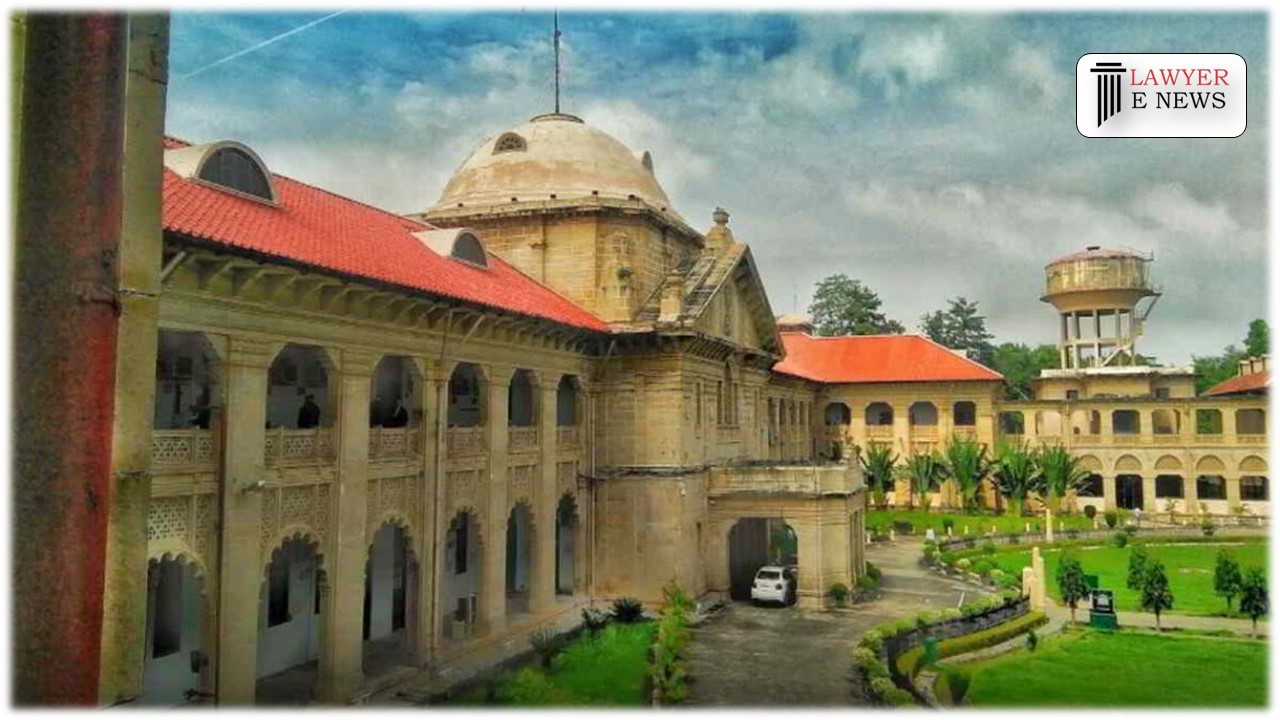-
by sayum
14 February 2026 2:22 PM



Disciplinary proceedings against Sabha Shankar Dwivedi annulled due to procedural lapses and failure to consider key defense evidence.
The Allahabad High Court has overturned the removal of Sabha Shankar Dwivedi, a Head Constable in the Railway Protection Force (RPF), citing significant procedural lapses in the disciplinary proceedings. The court found that the disciplinary authorities failed to consider crucial defense evidence and did not adhere to principles of natural justice, rendering the proceedings unfair and biased.
Sabha Shankar Dwivedi, a Head Constable in the Railway Protection Force, was implicated in a corruption investigation following the recovery of ₹15 lakhs from a colleague’s residence. The money was seized during a raid conducted by the CBI at the house of Vijay Kumar Maurya, a Constable in the RPF, and was claimed by Dwivedi as a loan taken for his daughter's marriage. Disciplinary proceedings were initiated against Dwivedi under Rule 153 of the Railway Protection Force Rules, 1987, resulting in his removal from service on the grounds of corruption, failure to report the loan, and conduct unbecoming of an RPF officer.
Procedural Lapses and Insufficient Evidence: Justice Prakash Padia highlighted multiple procedural lapses in the disciplinary proceedings. The court noted that the Enquiry Officer did not properly consider affidavits submitted by Dwivedi, which documented the loans taken from friends and relatives. "The Enquiry Officer's reliance on the seizure memo and statements, without verification, rendered the proceedings procedurally flawed," the judgment stated.
Violation of Natural Justice: The court underscored that Dwivedi was denied access to crucial documents, including his detailed list of lenders submitted to the CBI. "The failure to provide these key documents deprived the petitioner of a reasonable opportunity to present a full defense," observed Justice Padia. The court emphasized that such lapses constituted a clear violation of the principles of natural justice.
Contradictory Charges: The court found inherent contradictions in the charges against Dwivedi. The first charge alleged his involvement in corruption to protect another officer, Sanjay Pandey, while the second charge pertained to not reporting a loan transaction. "Only one of these charges could logically be substantiated, not both," the court remarked, calling the findings of the disciplinary authorities "untenable."
The judgment discussed the applicability of Rule 18(3) of the Railway Services (Conduct) Rules, 1966, which requires reporting loan transactions exceeding two months' basic pay. The court found that a 2005 circular exempted loans from friends and relatives from this requirement. "In view of the circular, the second charge does not hold," the court noted. The judgment also referred to other relevant legal provisions and precedents that supported Dwivedi's defense.
Justice Prakash Padia observed, "The entire inquiry proceedings were vitiated and not conducted in accordance with law." He added, "The violation of principles of natural justice in not considering the petitioner’s defense evidence makes the disciplinary action null and void."
The Allahabad High Court's decision to quash the disciplinary action against Sabha Shankar Dwivedi emphasizes the necessity for adherence to procedural fairness and natural justice in disciplinary inquiries. This landmark ruling reinstates Dwivedi and serves as a critical precedent for similar cases in the future, reinforcing the judiciary's role in upholding fair administrative practices.
Date of Decision: 31st May 2024
Sabha Shankar Dwivedi vs. Union of India and 4 Others
